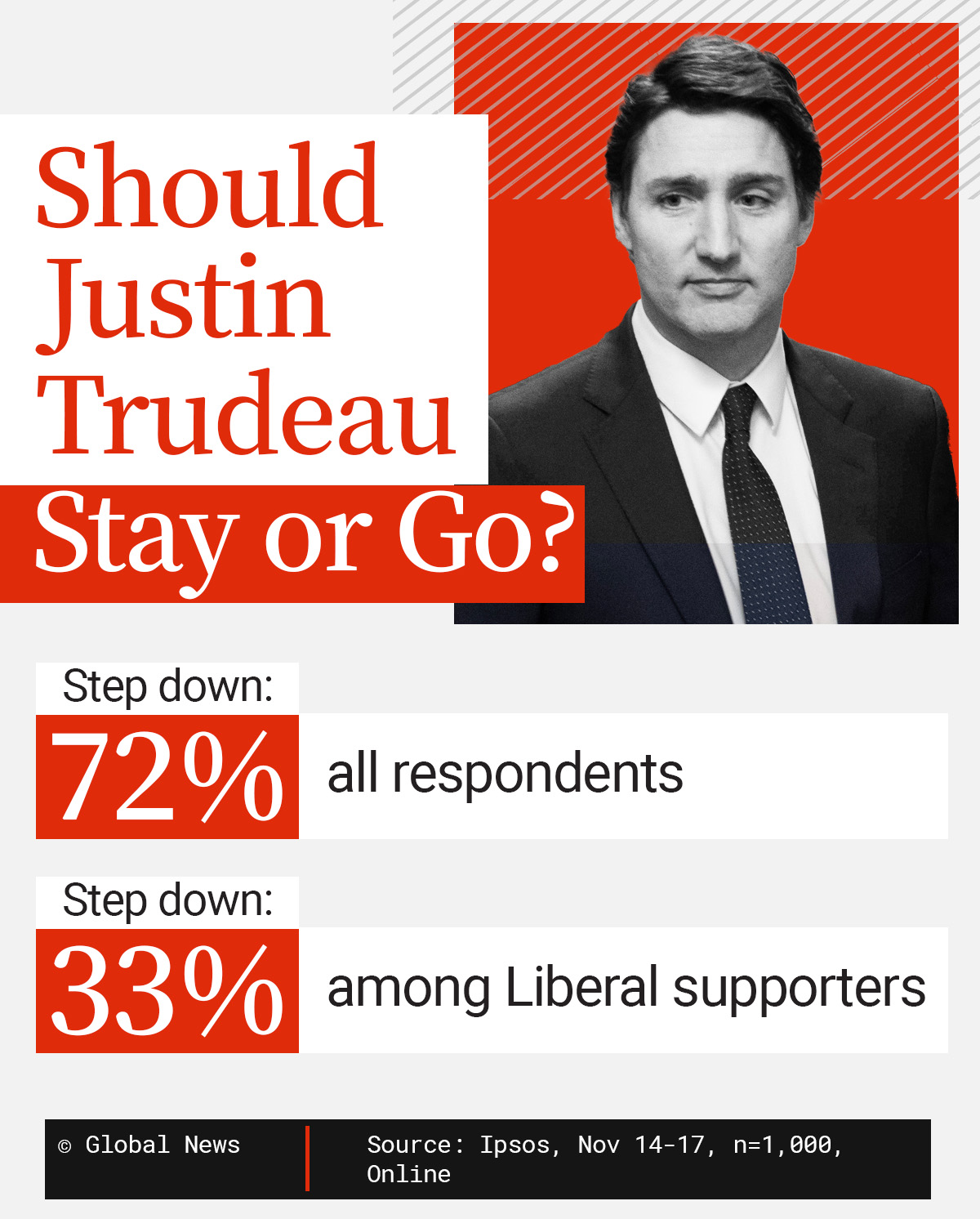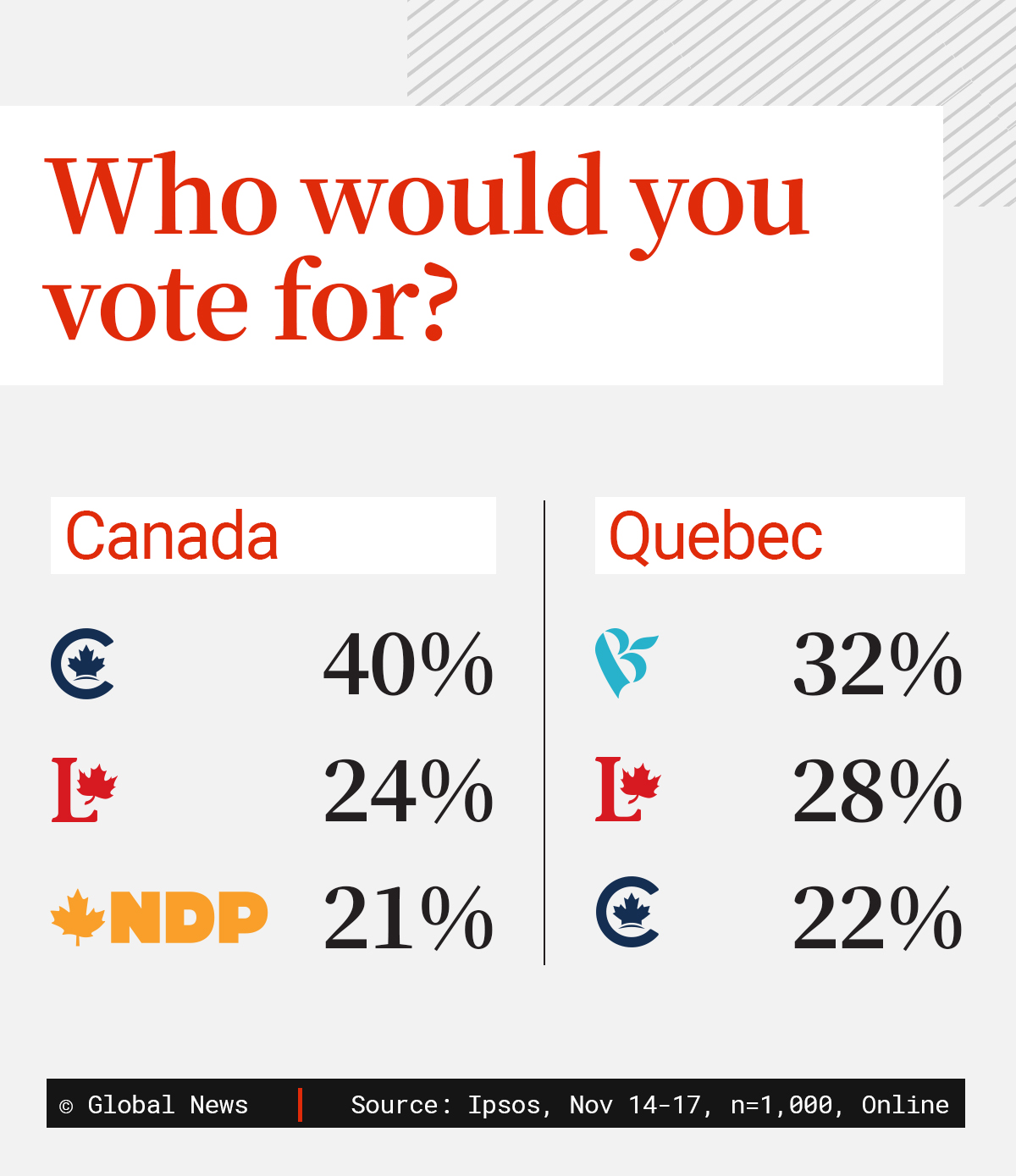On Feb. 28, 1984, Pierre Trudeau went for his famous walk in the snow where he made a decision about his political future.

The next day — a leap year Feb. 29 — his boys, including a future prime minister, tumbled into his bedroom to say goodbye to dad before heading to school. It was then that Pierre told them, “Boys, it’s time to go.” The elder Trudeau announced his resignation that day, clearing the way for a decade of rule by Brian Mulroney’s Progressive Conservatives.
But if anyone thinks Pierre’s son is going to clear the way for Pierre Poilievre’s Conservatives by taking his own walk in the snow this February and declaring to his children that it’s “time to go”, they may be disappointed.
Justin Trudeau has told his closest advisers he would not be true to himself if he quit as Liberal leader and prime minister; that he’s looking forward to fighting an election against Conservative Leader Pierre Poilievre; and that he believes that with two years until the next election — assuming the Liberal-NDP supply-and-confidence agreement holds — he and his party have enough runway to turn around poll numbers and win a fourth consecutive general election, a feat accomplished only by John A. Macdonald and Wilfrid Laurier.
But neither Macdonald nor Laurier ever faced an electorate that was so down on the prime minister the way it is on Trudeau.
New polling by Ipsos, provided exclusively to Global News, shows that nearly three in four Canadians believe Trudeau should step down now. Among those who identify as Liberal Party supporters, one in three think it’s time for a new party leader.
“I’ve never seen a number that high for a prime minister, probably since Brian Mulroney back in 1991, 1992. And that’s what this really reminds me of,” said Ipsos CEO Darrell Bricker.
“They created the party of Justin Trudeau and they’re going to live or die by that. They certainly have lived reasonably well over the space of the last eight years. But the other outcome is the one in which they’re defeated because they are the party of Justin Trudeau. And that’s where they are today.”
As goes Trudeau’s popularity, so goes the party’s.

Get breaking National news
Ipsos found that, if an election were held today, 40 per cent would vote Conservative, 24 per cent would vote Liberal and 21 per cent would vote NDP.
“If the NDP passes the Liberals in terms of second choice, I know what Jack Layton would do if he was the leader of the party,” Bricker said.
“He certainly wouldn’t support the government and they would go for it because they see themselves as the progressive replacement, the other option on the agenda on the ballot for Canadians who have a progressive point of view, but this NDP has not shown that level of moxie.”
While Jagmeet Singh’s NDP have been critical of Trudeau’s Liberals, they have not given any serious indication that they would unilaterally break the supply-and-confidence deal — a deal in which the minority Liberal government is guaranteed support on matters of confidence by the NDP in exchange for showing progress on a series of issues the NDP believe should be federal priorities, such as national pharmacare, universal dental care and housing.
The Liberals are not only in danger of slipping into third spot nationally, but they have also dropped to second spot in Quebec where the Bloc Quebecois is the choice of 32 per cent of those Ipsos surveyed in that province. The Liberals there are the pick of 28 per cent and the Conservatives the choice of 22 per cent.
Ipsos surveyed 1,000 Canadians using its online panel from Nov. 14 to 17. And while a margin of error cannot be calculated from online panels, the pollster says it can measure the reliability of its polls using a statistical method known as a credibility interval. Using that method, the pollster says its work is reliable to within 3.8 percentage points, 19 times out of 20.
Bricker says the 16-point Conservative lead is not so much the result of any particular ardour voters have for Poilievre or the Conservatives as much as it is complete weariness with the Trudeau government and the Trudeau government’s inability to be seen as managing the issues Canadians care about the most: inflation, health care and housing.
When Ipsos asked respondents which party they thought would be best to tackle inflation, fix the housing crisis, manage the economy, and keep taxes down, most respondents picked the Conservatives. On health care, poverty and social inequality, the NDP was the top pick, and on climate change, the Green Party came out on top.
The Liberal Party was not seen on any single issue as the best to manage it.
And yet Trudeau himself believes another election win is possible. With Sean Fraser as his new point person on housing, the government is trying to convince Canadians it is making meaningful changes to housing affordability and supply. That might help boost Liberal numbers. Meanwhile, for the first time since Trudeau became leader of his party a decade ago, the party is running paid negative advertising attacking Poilievre hoping to drive down Conservative numbers.
Looking at the current polling data, Bricker believes Trudeau’s optimism and faith is “a very brave take on the current situation.”
Bricker says the best hope for the Liberals, given the desire for change among three-quarters of the electorate, is for a major external shock — a Trump re-election perhaps — or a series of major blunders by the Poilievre Conservatives.
“It would be absolutely unique for somebody to pull it out of the fire in the situation that he’s in,” Bricker said.
“I mean, even his own party supporters, a significant number of them don’t want him to run again. There’s nothing there. There’s no silver lining that anybody can really grab on that suggests that there’s any pathway through to improving these situations.”
David Akin is the chief political correspondent for Global News.










Comments